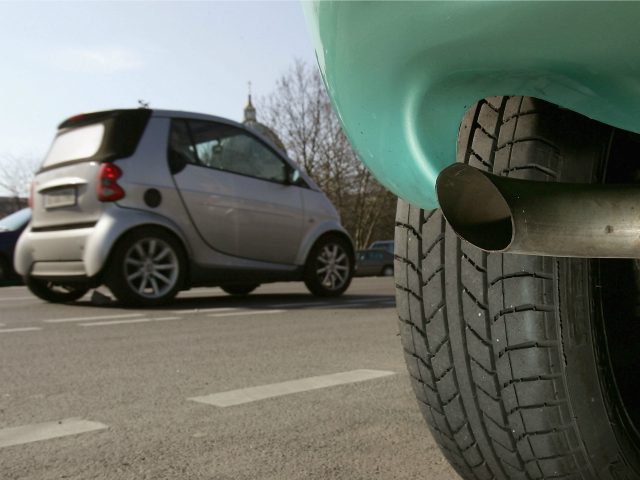I published an article recently noting that the European Union (EU) had expended considerable effort to limit emissions from industry and little effort limiting emissions from transport which is responsible for 25 per cent of all greenhouse gases. While Eurocrats worked to close various coal-fired power stations they seemed blithely indifferent to the fact that their headquarters was located on one of the most polluted streets in Europe. You can read my article here.
I noted that some pretty generous subsidies had failed to turn drivers on to electric cars, and that year on year the electric share of the EU fleet was actually falling. I’ve written before about electric cars, noting that since electricity is still generated mostly from hydrocarbons (often coal), then the cars are still pretty much fuelled by fossils. Check out the article here.
It was therefore something of a surprise when James Delingpole skidded his car to a halt in the pages of this publication, belching out the most noxious nonsense I have read in some time. I was accused of being, in no particular order, a Euro-technocrat living the ‘dream’, a ‘McBerk’ who didn’t understand the significance of fossil fuels, the reason why Conservatives have left the Party, an EU ‘inner’ and someone about to become an ‘Insect Overlord’ of the EU.
Where to begin?
As a geologist and former employee of BP, I am aware of the importance of hydrocarbons to the functioning of our world, all the more so as a Scottish MEP; the North Sea remains vital to our economy. Despite the claims of many, we are not but a small step away from full decarbonisation, and no where is this more evident than in transport sector: there are 240 million vehicles in the EU, with only 419,000 powered by electricity.
If you accept that climate change is a problem, and I know that Mr Delingpole does not, then the challenge facing the EU (and the UK, which signed the recent Paris Climate Change Agreement in its own right) is how emissions from vehicles, which continue to grow each year, can be lessened. Subsidies certainly haven’t done it, that much is evident.
Mr Delingpole interprets this vehicular failure as the market sending a signal. I agree. Until electric cars are as reliable and as cheap as their fossil fuel equivalents they will struggle to gain market share. However I suspect that change is coming. Public trust in car manufacturing has taken a knock. European car makers confronted by emission limits found an innovative solution: ‘cheat’ devices to dodge them. VW has recalled 9 million cars world-wide as a consequence. A customer buying a low emission car, wants a car with low emissions. As a member of the Parliament’s Committee investigating the scandal, you can find my concerns here.
Yet perhaps the most important figure in the debate is this: 400,000 premature deaths are caused by air pollution each year across the EU. That’s almost the population of Edinburgh. So, no matter whether you believe climate change is real or not, something needs to be done to save lives now.
When Margaret Thatcher drew the attention of the globe to climate change and the wider risks of atmospheric pollution, she was a pioneer. Her speeches to the Royal Society in 1988 and to the UN General Assembly in 1989 are worth reading but here is a flavour:
‘It is mankind and his activities that are changing the environment of our planet in damaging and dangerous ways. […] Change to the sea around us, change to the atmosphere above, leading in turn to change in the world’s climate, which could alter the way we live in the most fundamental way of all.
The environmental challenge that confronts the whole world demands an equivalent response from the whole world. Every country will be affected and no one can opt out. Those countries who are industrialised must contribute more to help those who are not.’
She spoke of three atmospheric risks: acid rain, the depletion of the ozone layer, and climate change. Attempts to arrest respiratory problems caused by vehicle emissions came later. Concerted action across the EU did much to address the first two. Mr Delingpole doesn’t believe in the third. And the fourth remains to be addressed both in the UK (and EU). Emissions are about more than just climate change.
As a footnote, it’s worth addressing Mr Delingpole’s distaste with the fact I was an MEP at all. As he said: ‘Some MEPs see their job as a necessary evil – a stepping stone to greater things or, in the case of UKIP, a chance to undermine the enemy from within. For you though, it’s just livin’ the technocratic dream isn’t it?’
Technocratic dream? You mean actually engaging in the law-making process? Yip. That’s what I do. I consult constituents. Hold public meetings. Sit in committees. I amend laws that would harm Scotland (and there are plenty of them) and help draft laws that would benefit Scotland. It’s the job I was elected to do.
Ian Duncan MEP is the Conservative Party Member of the European Parliament for Scotland

COMMENTS
Please let us know if you're having issues with commenting.